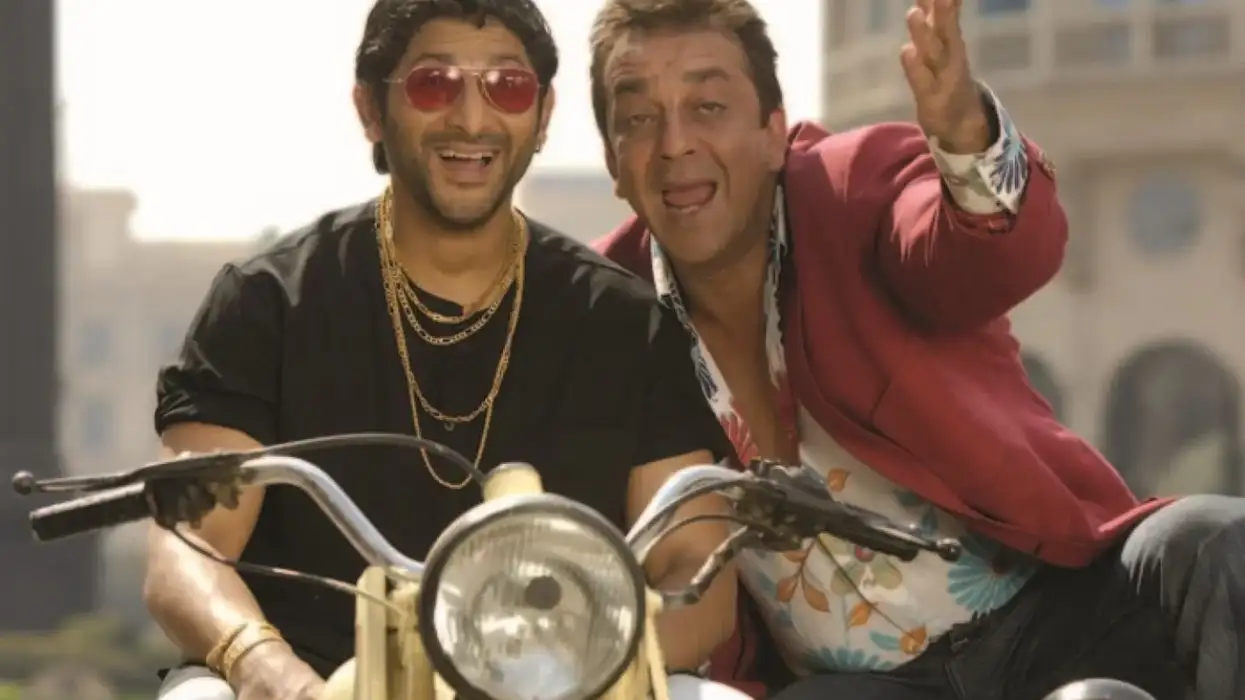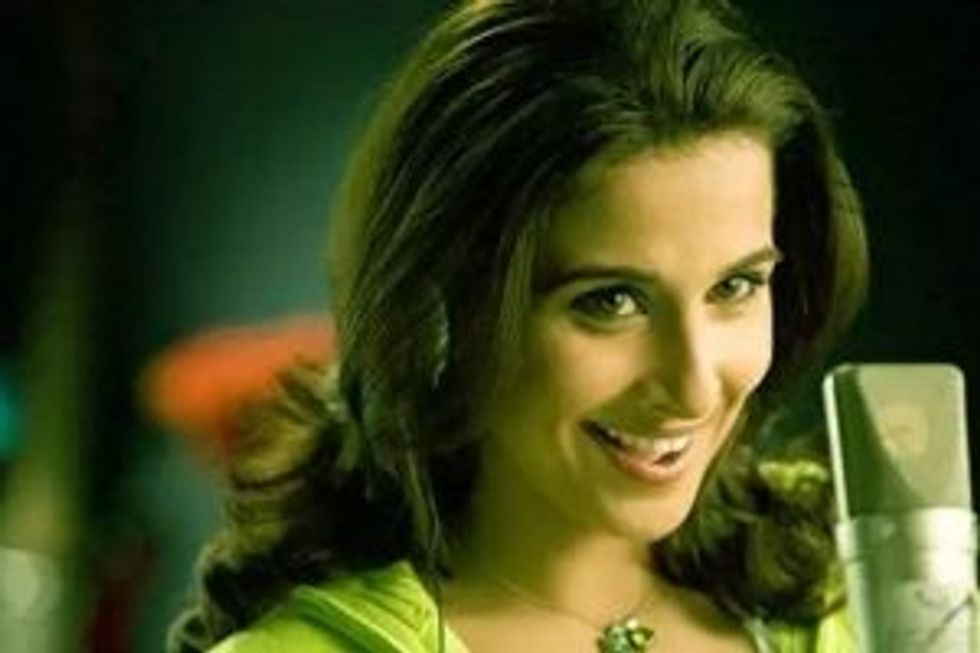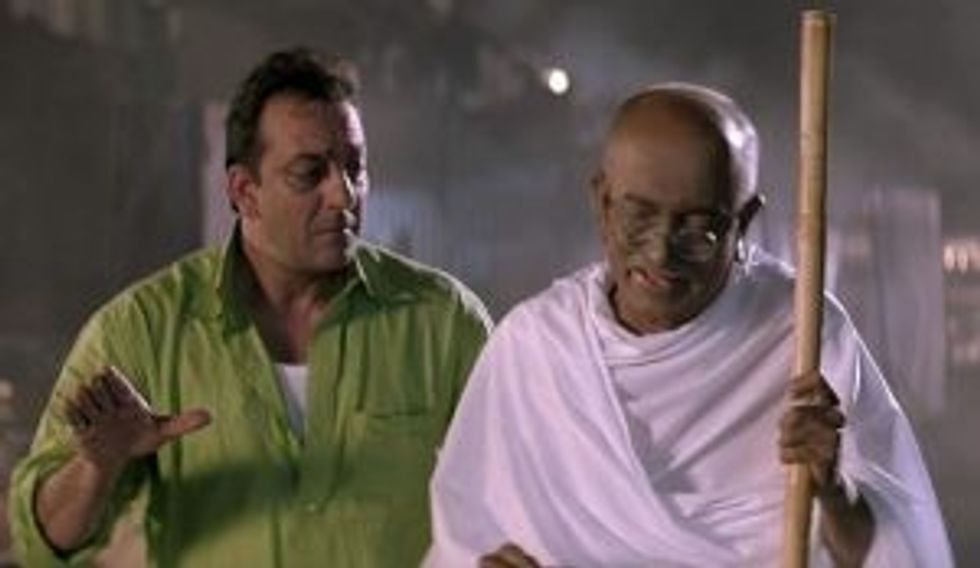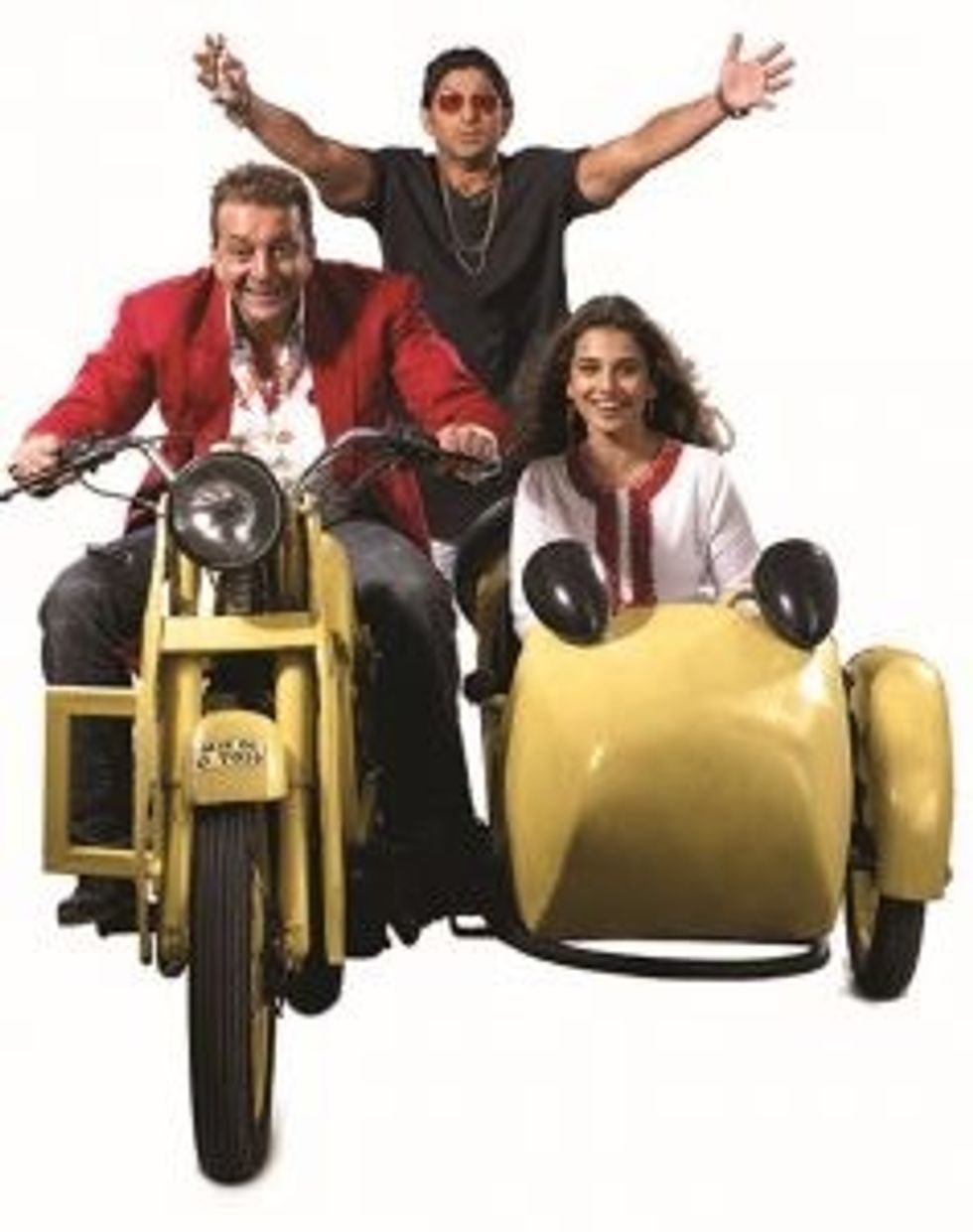THIS week marking the 17-year anniversary of Lage Raho Munnabhai, is a perfect time to point out that the movie is a lot better than you might remember and one of the greatest comedies ever made.
The satirical comedy-drama released on September 1, 2006, was a follow up to the hugely successful 2003 film Munnabhai MBBS, so had to be really good to avoid inevitable comparisons and writer/director Raj Kumar Hirani realised this very early on.
After making a stunning directorial debut in the story of a streetwise gangster going back to school to become a doctor, he needed a brand new story, which would once again combine comedy with an important social message. The initial plan was to make a story based around lawyers, but Hirani realised that it wasn’t a strong enough concept and would just be a legal version of the medical theme tackled in part one.
The filmmaker, who would go on to have a 100 per cent hit rate with blockbusters 3 Idiots, PK and Sanju, had the inspired decision of incorporating Mahatma Gandhi and the universal messages of humanity he stood for into the plot.
Ace director Hirani took everything he learned in Munna Bhai MBBS and added more layers to the stunning sequel. This time around, the street-smart hoodlum and his sidekick Circuit have a different set of circumstances to deal with and do so in a way that hadn’t been seen in Hindi cinema before.
After falling in love with a radio host, Murliprasad Sharma, alias Munna Bhai, cheats in a competition to meet her by pretending to be a Mahatma Gandhi expert. When she asks him to deliver a lecture, he learns about the late great leader and starts seeing speaking visions of him. What follows is him trying to solve people’s problems and an old people’s home, with the help of the Gandhi apparition only he can see and speak to. This resulted in a fabulous feel-good movie, which seamlessly mixed up comical moments with important thought-provoking social messages.
Unlike other films, it wasn’t preachy, and gifted nuggets of wisdom, which remained with audiences long after the end credits rolled.
Like Munna Bhai MBBS, it puts across enlightening messages of human goodness, but also went beyond that with added layers of love, kindness, tolerance and sacrifice for the greater good. It showed that many of Gandhi’s teaching of peaceful struggle remain relevant today. There have been countless films, TV shows, books, theatre plays and more about Mahatma Gandhi, but none have had the originality or accessibility of Lage Raho Munna Bhai.
The beautifully written contemporary film crossed different time periods, by connecting with ideologies from decades gone by. This, along with characters, which range from younger protagonists to those living in an old people’s home, gave this movie the kind of cross-generational appeal that few films have.
Such was the impact of the central themes that there was a renewed interest in Mahatma Gandhi, which is something that many biopics were unable to do. The movie also revived the idea of peaceful protests, which grew in the years that followed the release of this movie. There were reports that everyone from a mafia don to farmers, students, politicians, and green peace activists were inspired by the movie to make a positive change, such was the impact of the brilliant writing. An illustration of how powerful this movie’s central message of non-violence was is illustrated by it becoming the first Hindi movie to be screened at the UN. There were also screenings at universities around the world, including Harvard Law School, and at the 2007 Cannes Film Festival as part of the Tous Les Cinema du Monde section.
Although the Gandhi style goodness was the heartbeat of this movie, there was so much more. Sanjay Dutt and Arshad Warsi once again delivered masterful performances as the kind-hearted hoodlums, which consolidated the characters’ positions as modern day movie icons.
The brilliant supporting cast included newcomer Vidya Balan, in only her second film, showing quite comprehensively she had star potential – it would carry her towards a massively successful career. Boman Irani returned with another unique antagonist character.
The music may have perhaps been the film’s weakest element, but Lage Raho Munna Bhai still has the timeless romantic number Pal Pal Har Pal, which would equally be at home in 1953 or 2023, and the rousing anthem Bande Mein Tha Dum Vande Mataram.
Apart from the high entertainment value, the movie had many memorable scenes from start to finish, like the two male protagonists having a heart to heart in the toilets. There are many more that have a lasting impact. Whether it was his advice to a young man who has lost his father’s money or an individual dealing with a neighbour spitting on his doorstep, there were moments that had important life lessons for everyone.
It put across the message of taking the difficult path in a 21st-century era where people are looking for shortcuts, which is more relevant than ever in a social media driven 2023.
Another aspect of the movie that can’t be underestimated is that it was a great sequel. That is remarkable in an industry that doesn’t do sequels well.
Last, but not the least, the sequel was so good that the planned third instalment didn’t happen because they couldn’t match the all-round brilliance of a film that made everyone want to do the right thing.







